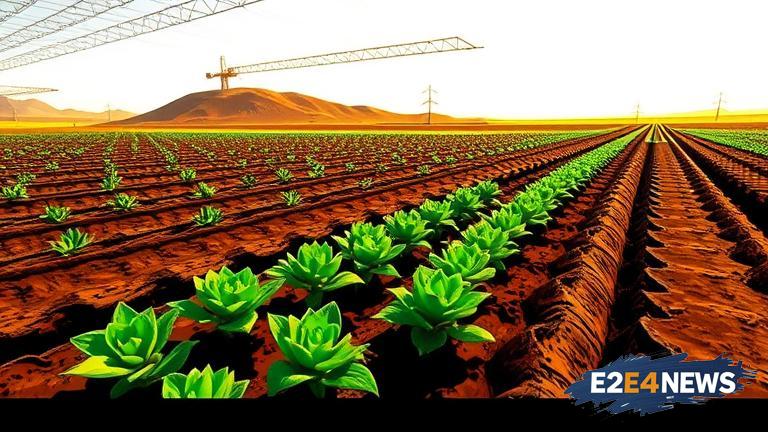Israel has long been a pioneer in agricultural innovation, and its latest endeavors in desert farming are no exception. The country’s agricultural sector has been working tirelessly to develop and implement new techniques to increase crop yields and promote sustainable farming practices in the desert regions. One of the key methods being employed is the use of advanced irrigation systems, which enable farmers to conserve water and reduce waste. Additionally, Israeli farmers are utilizing specialized crops that are resistant to drought and can thrive in the harsh desert conditions. These crops include a variety of fruits and vegetables, such as tomatoes, cucumbers, and bell peppers. The introduction of these innovative farming techniques has not only increased crop yields but also created new opportunities for farmers in the region. The Israeli government has also launched initiatives to support farmers and provide them with the necessary resources and training to adopt these new methods. Furthermore, the country’s agricultural sector is working closely with international organizations to share knowledge and expertise in desert farming. This collaboration has led to the development of new technologies and strategies that can be applied to other regions around the world. The impact of these innovative farming techniques extends beyond the agricultural sector, as they also contribute to the country’s food security and economic growth. Israel’s desert farming initiatives have also attracted international attention, with many countries seeking to learn from its experiences and adopt similar methods. The country’s expertise in agricultural innovation has also led to the establishment of new research centers and institutions, which are dedicated to developing and promoting sustainable farming practices. These research centers are working on a range of projects, from developing new crop varieties to improving irrigation systems. The Israeli government has also implemented policies to support the development of the agricultural sector, including investments in infrastructure and technology. The country’s agricultural sector is also working to reduce its environmental impact, through the use of renewable energy sources and sustainable farming practices. Overall, Israel’s innovative desert farming techniques are a testament to the country’s commitment to sustainable agriculture and its determination to push the boundaries of what is possible in this field. With its rich experience and expertise, Israel is well-positioned to become a global leader in desert farming and to share its knowledge with other countries. The country’s agricultural sector is expected to continue to grow and develop, driven by its innovative spirit and its commitment to sustainability. As the global demand for food continues to rise, Israel’s desert farming initiatives are likely to play an increasingly important role in meeting this demand. The country’s expertise in agricultural innovation is also expected to have a positive impact on the environment, as sustainable farming practices become more widespread. In conclusion, Israel’s innovative desert farming techniques are a significant step forward in the country’s efforts to promote sustainable agriculture and increase crop yields. The country’s agricultural sector is poised for continued growth and development, driven by its innovative spirit and its commitment to sustainability.
